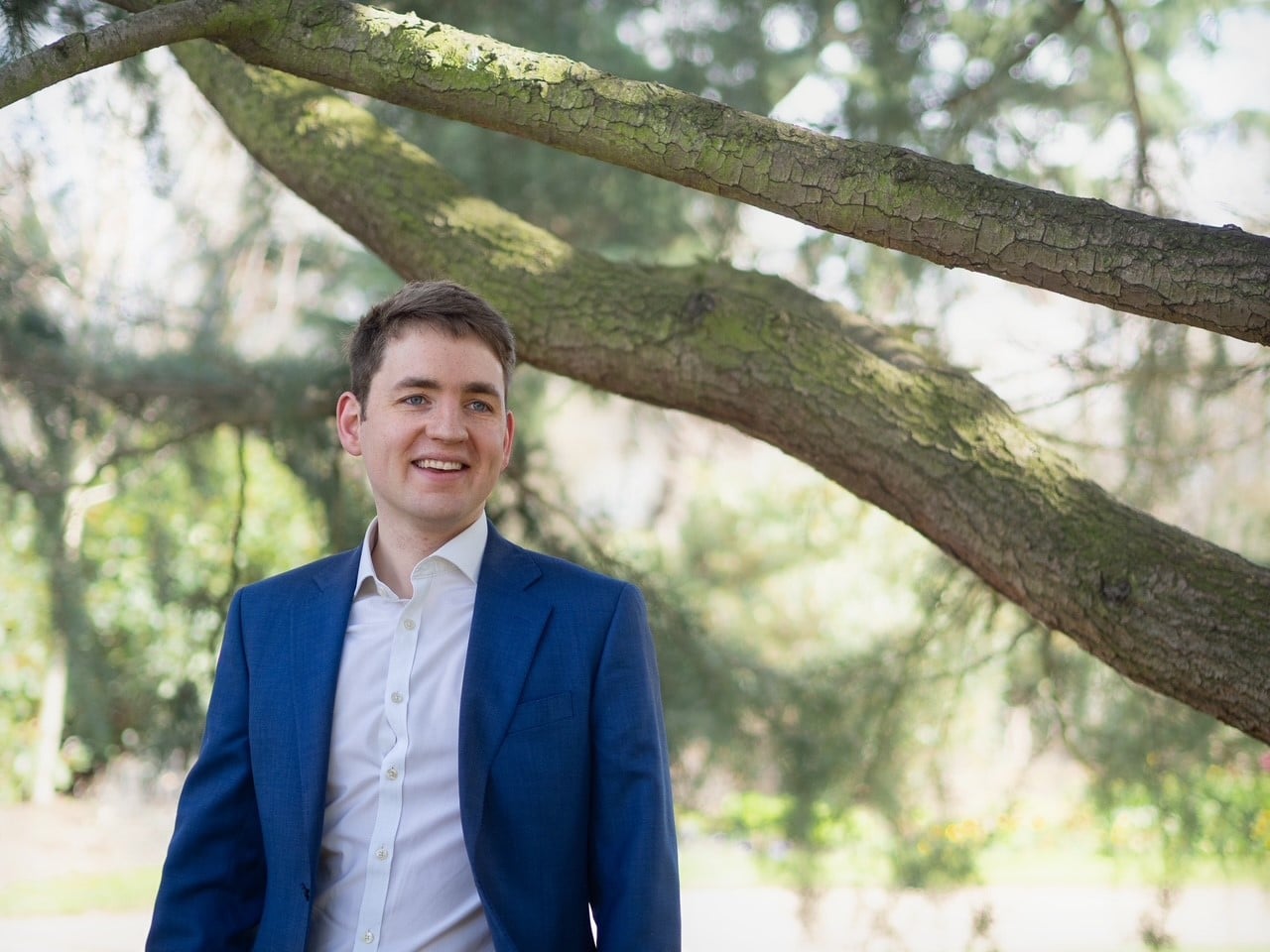
UK Summer School , 2009
James Beddoe
Professional opera singer
James is from Nottinghamshire and took part in a Sutton Trust History Summer School at the University of Nottingham in 2009. He...Tell us a little bit about your background.
I grew up in West Sussex and went to secondary school in Crawley. I was pretty set on going to university – even though no one in my family had gone to university, my teachers clearly saw that I enjoyed subjects like Maths and Science and that I had a knack for it.
What was your experience like on the programme?
From the Summer School, I could really see myself going to university to do a Physics course.
It was intense but a great opportunity to do things that I’d never really thought about before. I got to try things for the first time that I now do every day in my job, like programming. I realised that university wasn’t this big scary thing, and it helped with communicating with academics too, as I realised they’re just friendly people who want to share their passion and knowledge of their subject area. On the social side too, I had a great time meeting people and I’m still in touch with one or two.
How did your career progress after your Sutton Trust Programme?
I completed an integrated Masters in physics and astrophysics at the University of Sheffield, and this included one year spent at the Australian National University in Canberra. That was the point when I knew I wanted to go into research and pursue academia. Sitting in the control room in a professional observatory and feeling so involved in a research group really helped with the confidence to pursue that as my career path.
I then did a PhD in astrophysics at the University of Geneva, Switzerland, hunting for exoplanets, which are planets outside of our Solar System. Now, I am a research fellow working for the European Space Agency in Baltimore, USA, and I work in a similar field. I’ve discovered many planets and brown dwarfs, which are objects bigger than a planet but smaller than a star, but a highlight for me was discovering one particular brown dwarf. I remember working to process all the data, opening the image and suddenly seeing it for the first time – that was such an exciting moment. Unfortunately though, I didn’t get to name my discoveries.
Having travelled a lot in my career, it’s not easy just to uproot your life every few years; from a social side and financial point of view it can be very difficult. But it is worth it, so I think if you have an opportunity to do it then do it. You often also get a lot of support from your university or workplace. Even if it’s somewhere where you don’t know the language fully, the experiences that you will gain by going to an institute abroad is such a huge benefit to your career and it is such an interesting experience culturally too. For me, going to the Atacama Desert in Chile as an astronomer and being able to observe with giant 8.2m telescopes – you can’t really beat that.
What are your ambitions for the future?
I’ll be here in Baltimore for a few years but you have to be thinking ahead to your next step in academia. It’s also really hard to say where I will go next on the academic route, as your career can take you down very weird and wonderful paths and it’s very funding-dependent. I want to continue being flexible in terms of moving around and experiencing new cultures and new languages, and I want to continue to pursue those big scientific questions and hopefully contribute even just a small puzzle piece to the much bigger jigsaw of understanding of our universe.
What advice would you give to a future Sutton Trust student?
Throw yourself in. Try to make the most of your opportunities as much as possible. You’re not expected to go to university and know all the answers, so use your knowledge and passion and just ride that. If you have an idea in your mind of things you want to go into, don’t be afraid to reach out to people in that area, go to open lectures and museums, and get involved in whatever opportunities are out there.
While it’s good to have a vision of where you want to go, it’s important to be adaptable too, and it’s also fine to change your mind along the way. While it’s never too early to get involved with what you’re interested in, it’s also never too late to start something new.
Get in touch with us to share your story via [email protected]